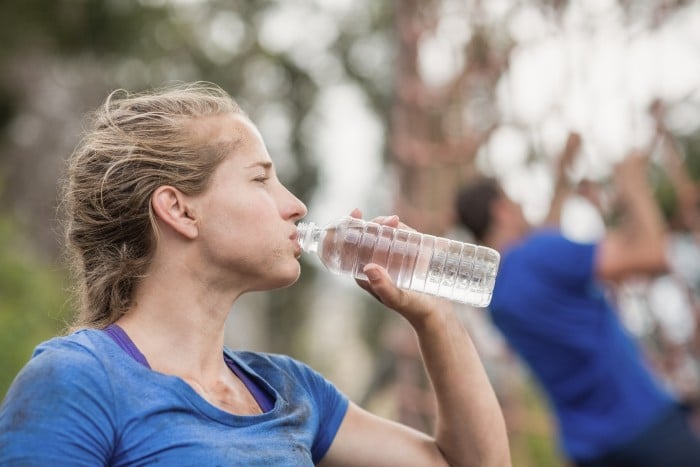You want to go camping but are concerned about how it will impact your health. Diarrhea and vomiting during a visit to the campground might leave you feeling worn out and wondering if it is truly the result of your camping.
Camping can make you sick if you consume unclean water or food that has grown bacteria due to improper storage. Poor hygiene and sanitation lead to the growth of bacteria and viruses that can cause nausea, vomiting, and diarrhea. Dehydration also leads to not feeling well, as can wet clothes.
If you want to avoid feeling sick on your next camping trip, here are the things you need to watch out for.
How Does Camping Make You Sick?
If you know how camping can make you sick, you can take steps to avoid some of the most common ailments that you will experience while in the great outdoors.
Here are all the ways that you might be getting sick while camping.
1. Drinking Unpurified Water
Staying hydrated helps, but it may have the opposite effect if you don’t drink high-quality water.
Some campers prefer to “rough it”, collecting their drinking water from natural sources like streams and lakes. Unfortunately, this water may not be as clean as it seems.
Natural water sources can harbor bacteria, viruses, and parasites that result in common illnesses like nausea, vomiting, or diarrhea.
Waterborne diseases aren’t reserved just for under-developed countries. And it may not be apparent that the water in your camping site is tainted by pollution, dirt, or animal waste upstream.
Most of the bacteria you will find in the water are diarrheal diseases which can lead to other symptoms of feeling unwell, including dehydration.
Even if you bring your own water filter, you might have an issue if the filter isn’t clean or working properly.
Water filters can strain out some types of bacteria encountered in nature, but they may not be able to filter out viruses that are often much smaller.
When you are done using a purifier, reverse the attachment and let water flow out the other way for a minimum of 20 seconds. Shake the purifier to remove any excess water.
If you find yourself sick while camping, it might be time to invest in a water purifier which is more effective at offering protection from viruses like rotavirus and norovirus, as well as hepatitis A.
Be aware of where you are collecting water.
If it’s at the mouth of a stream that empties into the sea, make sure you’re far enough upstream that you aren’t unknowingly collecting saltwater.
This can ruin your water purifier. Alternatively, you could bring your own bottled water from home if you don’t mind adding a few pounds to your pack.

2. Improper Food Storage
You have to eat something when you are camping, and most people pack their own food that they bought at the store.
However, you might have a problem if you aren’t careful about how you store perishable goods like meats and dairy products.
Spoilage can lead to serious illnesses, not to mention you won’t have much to eat if you allow your food to go bad.
The good news is that preventing food spoilage can be simple. Take two high-quality coolers, one for all of your perishable goods and one for water, drinks, and snacks.
Keep the lid closed on the one containing your perishable items to seal in the cold to help them last longer.
If you are still concerned that you might get sick from improper food storage, try packing dehydrated or nonperishable food items from cans or packages.
3. Poor Hygiene and Sanitation
Most campers know they won’t have access to the same standard of cleanliness that they would have at home, but that doesn’t mean you should forego hygiene altogether.
You may touch something that carries bacteria in a restroom, or raw meat.
When you come into contact with something that could trigger an illness, you must always wash your hands.
If you are camping in an area without running water and hand soap, pack a bottle of hand sanitizer to kill the bacteria.
It might also go without saying, but you should ensure that your toilet spot is far away from the rest of your campground.
In particular, you want to keep your kitchen or food prep area as far away from the bathroom as possible. Also, keep all of your waste contained and away from the campsite.
In between camping trips, make sure to clean all of your utensils and dishes with hot water and soap. This includes your water bottle and any washable filters that it may have.
These items can easily harbor bacteria that can make you sick the next time you go camping.
4. Wet Clothes
One reason many people get sick while camping is because of wet clothing that is drenched in sweat after an afternoon of hiking in the heat.
You should change your clothes before going to bed, especially if you are camping where the temperatures drop at night,
Not only can wet clothes make you more susceptible to hypothermia when the temperature drops, but they can also harbor bacteria that can make you sick.
If your body’s working overtime to keep warm in wet clothes, your immune system is affected.
A weakened immune system leads to more illnesses, even though they may not surface for a few days.
Thus, you are more likely to develop cold or flu-like symptoms if you frequently wear wet clothes.
You should also avoid sleeping with socks on and try to keep your head warm at night by wearing a beanie.
If you are too cold at night and your head is exposed while the rest of the body is in the sleeping bag, blood will rush from the body to the head when you get up in the middle of the night when nature calls.
The result is dizziness or fainting. Be sure to pack extra clothes or you can also lay your clothes out in the sun to dry while you aren’t wearing them.
Other tips that can help include making sure your bedding is dry when you go to sleep. During the day, tents tend to get humid and damp with temperature changes.
Be sure to dry out your sleeping bag and blankets before you curl up for bed.
5. Dehydration
Even though you have been drinking water all day, dehydration can occur if you lack the proper levels of electrolytes.
The early symptoms of dehydration include dizziness, cramps, and a feeling of weakness. However, they can evolve into nausea and vomiting, worsening the situation.
You might be dehydrated from the heat, from not drinking enough water, or from exhaustion when carrying your own water sources around with you.
Fortunately, this is simple enough to avoid by taking electrolyte pills or powders.
If you don’t want to spend the money on these, get a can of Morton Lite salt to add to your food.
You can also eat salty snacks. Watch how much caffeine you are consuming, as this can also dehydrate you.

6. Altitude Sickness
If you are camping at higher altitudes, you might experience symptoms of altitude sickness due to the thin air and reduced oxygen.
Many people experience this illness at 8,000 feet above sea level or greater.
Keep in mind that if you live in a high altitude place, it may take longer to get altitude sickness because your body has already adjusted to the thin air.
The early signs of altitude sickness include nausea or vomiting, fatigue, loss of altitude, and even difficulty sleeping.
However, the primary symptom is often a headache which can be treated with over-the-counter painkillers. You can also use an oximeter to check your oxygen levels.
To avoid altitude sickness, take it slow to reach your destination and take a few days to adjust to higher altitudes.
7. Allergies
Being in the wilderness is relaxing, but it can trigger allergies in those susceptible to pollen.
Fortunately, taking an antihistamine can help alleviate some of these symptoms though it may make you a bit sleepy.
The good news is that avoiding allergy triggers can be quite simple. To get a good night of rest, keep your tent closed to keep allergens like pollen out.
Close it off as much as possible, both during the day and at night. You can also take off jackets and shoes before entering.
8. Mosquitos and Insects
Mosquitos are notorious for passing along diseases like West Nile and malaria. It is more serious than a simple itch that can’t be scratched.
Their bites are annoying even at the best of times, but they can be quite serious. Avoid them at all costs during the day by using insect repellent.
If you are looking for a more natural remedy, peppermint can help keep these critters at bay.
At night, you should use a mosquito or midge net to keep them out, so you don’t have to worry about waking up to reapply insect repellent.
9. Ticks
Certain types of ticks, particularly black-legged or deer ticks, carry Lyme disease.
Make sure that you are checking for ticks regularly before they have the opportunity to latch on and pass along the disease.
If you do find ticks on your body, use a tick removal tool to remove them properly.
This investment costs just a few dollars but is an essential addition to your camping bag when in the woods.
Final Thoughts
It is possible that camping can make you sick due to bacteria or viruses that cause diarrhea and nausea or vomiting.
Fortunately, many of these conditions can be avoided with the proper items such as clean utensils, clean water, and well-preserved food items.
Invest in quality items that can enhance your sanitation at the campground, such as quality hand sanitizer or separate coolers.
You might see some of these common ailments fade away the next time you go camping.
